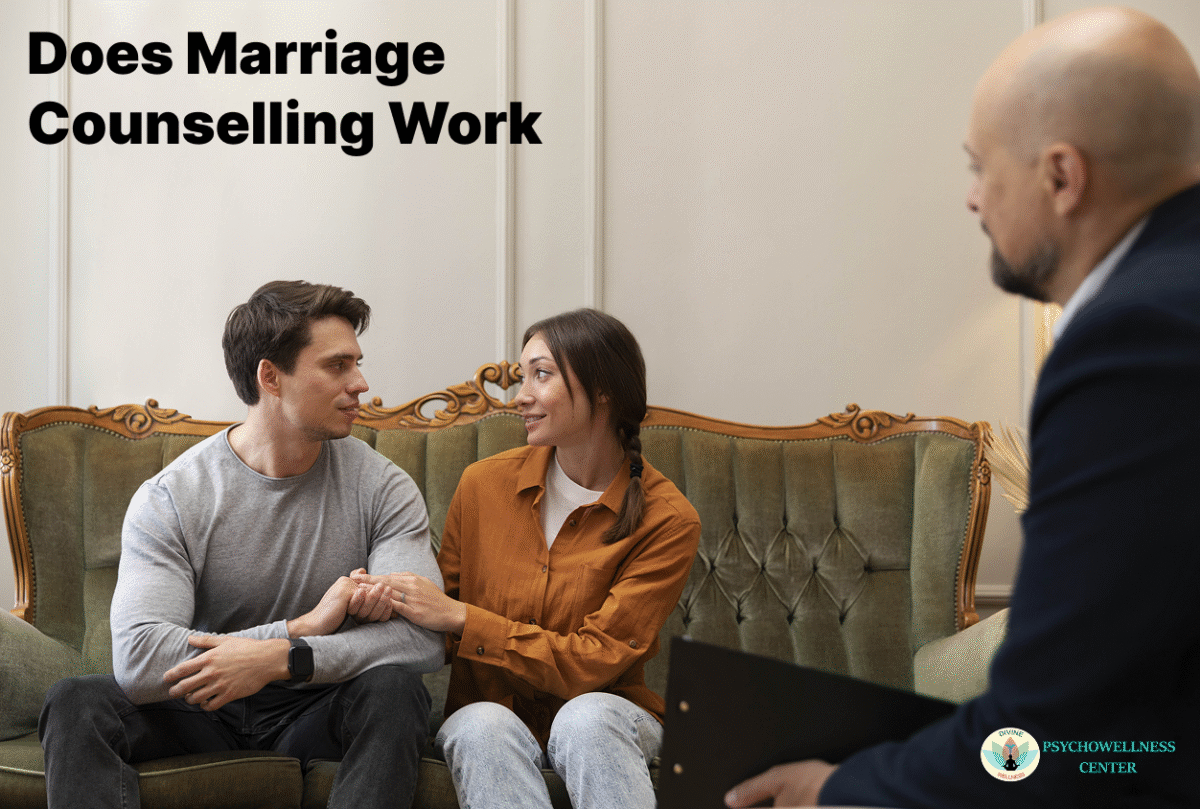Marriage is a complex partnership requiring ongoing effort, communication, and emotional understanding. Conflicts, unmet expectations, and life stressors can challenge even the strongest relationships. In such scenarios, couples often turn to marriage counselling as a structured approach to address difficulties, improve communication, and rebuild intimacy. But the question remains: Does marriage counselling really work?
Common Issues in Marriage
1. Communication Problems
- Frequent misunderstandings or a lack of open dialogue.
- Difficulty expressing feelings or needs.
- Habitual criticism, blame, or defensiveness.
- Trust and Infidelity
- Emotional or physical affairs are causing insecurity.
- Breach of trust through secrecy or dishonesty.
- Difficulty rebuilding trust after conflicts.
- Financial Stress
- Disagreements over spending, saving, or financial priorities.
- Unequal contribution to household responsibilities.
- Pressure from debt or economic instability.
- Emotional Disconnect
- Feeling unheard, unappreciated, or neglected.
- Decline in intimacy or emotional support.
- Growing apart due to a lack of shared experiences.
- Parenting and Family Conflicts
- Disagreements on child-rearing practices.
- Pressure from extended family involvement.
- Balancing work-life responsibilities with family needs.
- Differing Values or Life Goals
- Conflicts in career priorities, lifestyle, or religion.
- Misalignment in long-term goals or expectations.
- Stress and External Pressures
- Work stress, health issues, or life transitions.
- Social pressures or societal expectations are impacting the relationship.
- Mental Health and Personal Issues
- Anxiety, depression, or unresolved trauma affecting marital dynamics.
- Substance abuse or addictive behaviours are causing strain.
The Effectiveness of Marriage Counselling
Research suggests that marriage counselling can be highly effective in improving relationship satisfaction, reducing conflict, and enhancing communication skills. Studies indicate that evidence-based therapies, such as Emotionally Focused Therapy (EFT) and Cognitive Behavioural Therapy (CBT) for couples, result in significant improvements for many couples (Johnson, 2004; Lebow, Chambers, Christensen, & Johnson, 2012).
Key factors influencing the effectiveness include:
- Commitment of Both Partners: Positive outcomes are more likely when both partners are engaged and willing to participate actively.
- Therapist Expertise: Trained and licensed professionals, such as clinical psychologists or certified marriage counsellors, provide guidance grounded in research-based interventions.
- Timing and Motivation: Couples who seek counselling proactively, rather than only during crisis moments, tend to experience more sustainable benefits.
- Therapeutic Approach: Structured approaches like EFT focus on creating secure emotional bonds, while CBT addresses negative thought patterns and communication challenges.
Benefits of Marriage Counselling
- Enhanced Communication Skills: Couples learn to express thoughts and feelings constructively, reducing misunderstandings.
- Conflict Resolution: Counselling provides tools to manage disagreements without escalating tension.
- Emotional Connection and Intimacy: Therapists guide couples to understand emotional needs and foster empathy.
- Personal Growth: Individuals often gain self-awareness, improved coping skills, and better emotional regulation, which strengthens the relationship overall.
- Prevention of Separation or Divorce: Early intervention can reduce long-term relationship breakdowns.
Common Issues in Marriage
1. Communication Problems
- Frequent misunderstandings or a lack of open dialogue.
- Difficulty expressing feelings or needs.
- Habitual criticism, blame, or defensiveness.
2. Trust and Infidelity
- Emotional or physical affairs are causing insecurity.
- Breach of trust through secrecy or dishonesty.
- Difficulty rebuilding trust after conflicts.
3. Financial Stress
- Disagreements over spending, saving, or financial priorities.
- Unequal contribution to household responsibilities.
- Pressure from debt or economic instability.
4. Emotional Disconnect
- Feeling unheard, unappreciated, or neglected.
- Decline in intimacy or emotional support.
- Growing apart due to a lack of shared experiences.
5. Parenting and Family Conflicts
- Disagreements on child-rearing practices.
- Pressure from extended family involvement.
- Balancing work-life responsibilities with family needs.
6. Differing Values or Life Goals
- Conflicts in career priorities, lifestyle, or religion.
- Misalignment in long-term goals or expectations.
7. Stress and External Pressures
- Work stress, health issues, or life transitions.
- Social pressures or societal expectations are impacting the relationship.
8. Mental Health and Personal Issues
- Anxiety, depression, or unresolved trauma affecting marital dynamics.
- Substance abuse or addictive behaviours are causing strain.
Challenges and Considerations
While marriage counselling can be highly effective, results vary based on several factors:
- Resistance from a Partner: If one partner is unwilling, progress may be limited.
- Unrealistic Expectations: Counselling is a process, not an instant solution.
- Severe Relationship Issues: Situations involving abuse or infidelity may require additional interventions alongside traditional counselling.
Platforms such as TalktoAngel, offering online counselling with access to some of the best therapists in India, make it easier for couples to seek professional help discreetly and conveniently.
Conclusion
Marriage counselling does work — especially when both partners approach it with commitment, openness, and a genuine willingness to grow. Through guided communication exercises, emotional insight, and conflict-resolution techniques, counselling helps couples move beyond blame and defensiveness toward understanding and empathy. When facilitated by qualified professionals, it offers a safe space for partners to express unmet needs, rebuild trust, and strengthen emotional intimacy. Over time, couples learn healthier patterns of communication, emotional regulation, and problem-solving that foster long-term satisfaction and stability. Early intervention, consistency, and active participation are key predictors of success. Whether through online counselling platforms like TalktoAngel, which provide flexibility and privacy, or through face-to-face sessions at Psychowellness Centre, where in-person interaction deepens connection, marriage counselling offers couples the tools to not only repair but also enhance their relationship — helping them rediscover partnership, compassion, and shared purpose.
Contribution: Dr. R.K. Suri, Clinical Psychologist, and Ms. Sangeeta Pal, Counselling Psychologist
References
- Johnson, S. M. (2004). The practice of emotionally focused couple therapy: Creating connection (2nd ed.). New York, NY: Brunner-Routledge.
- Lebow, J., Chambers, A. L., Christensen, A., & Johnson, S. (2012). Research on the treatment of couple distress. Journal of Marital and Family Therapy, 38(1), 145–168. https://doi.org/10.1111/j.1752-0606.2011.00247.x
- Gurman, A. S., Lebow, J., & Snyder, D. K. (Eds.). (2015). Clinical handbook of couple therapy (5th ed.). New York, NY: Guilford Press.

